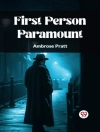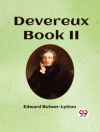In ‘Foreign Butterflies, ‘ James Duncan embarks on a poignant exploration of cultural identity, migration, and the sense of belonging. Through his rich and evocative prose, the novel melds lyrical storytelling with a keen psychological insight, positioning itself within the contemporary landscape of post-colonial literature. Duncan unveils the hidden layers of his characters’ lives, each burdened by their personal histories yet striving for connection in a foreign land, grappling with the allure and alienation that accompanies displacement. The narrative style oscillates between introspective monologues and vivid scenes that evoke the sensory richness of diverse locales, immersing readers in both the beauty and the chaos of the immigrant experience. James Duncan, a scholar of cultural anthropology and literature, draws upon his own experiences as a traveler and observer of societal complexities. His background informs the nuanced portrayal of characters confronting the duality of their existence—caught between the nostalgia of home and the demands of their new environment. Duncan’s commitment to amplifying marginalized voices enhances the authenticity of the narrative, revealing deep emotional truths that resonate with universal themes of hope and resilience. This compelling work is recommended for readers seeking a thoughtful examination of the immigrant psyche. Duncan’s storytelling not only entertains but also invites reflection on the nature of home and identity, making ‘Foreign Butterflies’ an essential read for anyone engaged in the dialogue of diversity, belonging, and the human experience.
About the author
James Duncan was a meticulous naturalist and entomologist of the 19th century, whose contributions to the field of lepidopterology are notably represented in his seminal work, ‘Foreign Butterflies.’ Duncan’s affinity for the natural world turned into a scholastic pursuit, resulting in detailed examinations and descriptions of butterfly species from beyond the shores of his native land. His literary style merged scientific precision with an appreciation for the aesthetic beauty of these insects, making his work both an authoritative scientific document and a celebration of nature’s artistry. While ‘Foreign Butterflies’ remains a testament to Duncan’s expertise, it is also reflective of the Victorian era’s burgeoning interest in collecting and studying the extensive diversity of foreign fauna and flora. Duncan’s contributions have not only provided foundational knowledge in the field but have also inspired generations of lepidopterists and naturalists. His meticulous documentation resonates with contemporary researchers and enthusiasts who seek to understand the complexities of butterfly species and their conservation in an ever-changing world. Regrettably, much of Duncan’s personal life and additional bibliographic history remain obscure to the modern scholarly community, underscoring the need for further research into the life and influence of this dedicated observer of nature’s winged marvels.












